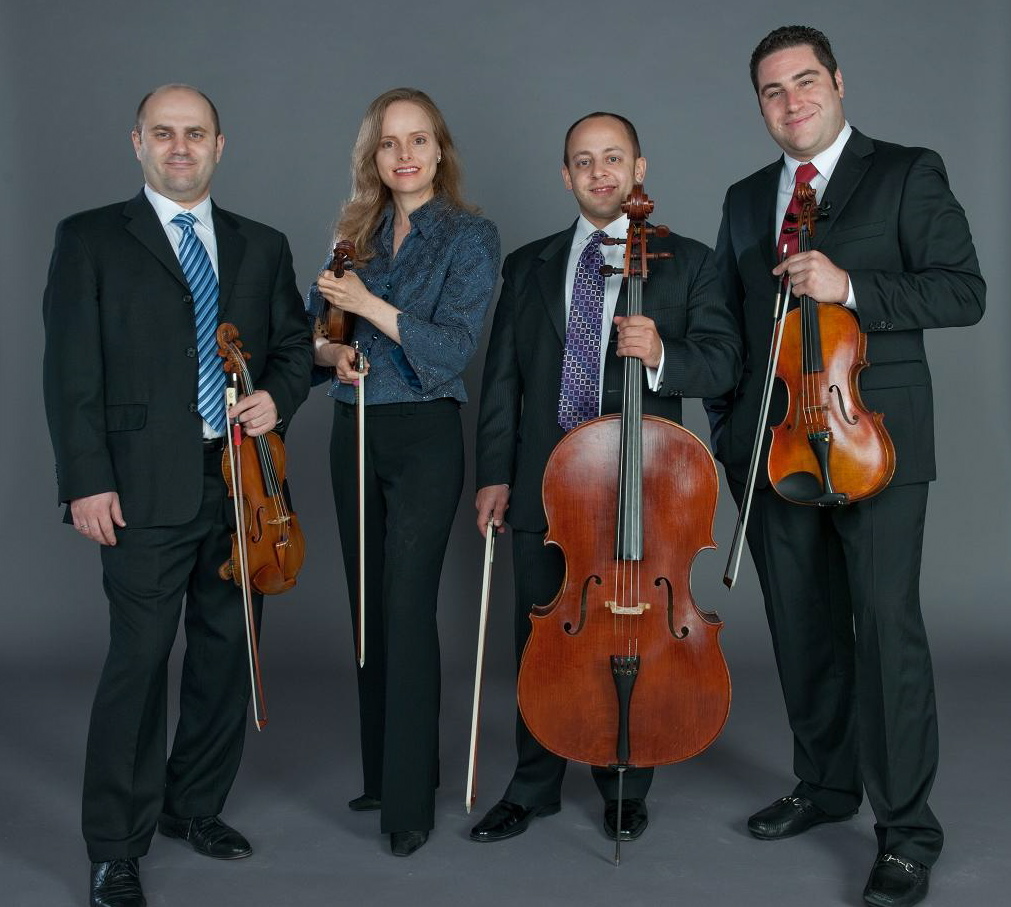Amernet Quartet brings dark intensity to Mozart Festival

The Amernet String Quartet performed music of Schubert, Mozart and Tchaikovsky Sunday at the Coral Gables Museum.
The Amernet String Quartet turned to the stormy side of the literature for its share of the Mainly Mozart Festival Sunday, giving a performance in which the turbulence rarely let up.
The quartet, performing at the Coral Gables Museum, opened with Schubert’s single-movement Quartet in C Minor, D.703 (Quartettsatz), and from the quietly tense opening bars, this was a crackling, intensely felt performance. The Amernet’s strengths were on display from the start — solid intonation, technical agility and a rich, balanced, lustrous tone.
Mozart’s String Quartet in D Minor, K. 421, part of a set dedicated to Haydn, presents a different Mozart than the high-spirited, tasteful, melodious composer who so often makes appearances on chamber music programs. This is a darkly dramatic work, and the Amernet musicians reveled in its storm clouds, even bringing an undercurrent of tension to the few sections of repose. The first movement was fiery and hard driven, with the tension lessened by their wistful performance of the second theme. After a while, it felt like the performance suffered from an unvarying intensity, with even the Menuetto taken in a forceful manner. But the final movement was finely played, with the elegant formality of a grim court dance.
Tchaikovsky’s String Quartet No. 3 is rarely performed, and it’s not hard to see why. It’s very long, it sounds like the work of a man who would rather be producing a score for full orchestra, and the musical material sometimes seems thin for its length. But there is much inspired material in this sprawling score, and the Amernet ensemble gave an energetic, committed performance that brought out its strengths.
String quartets, particularly those of the 18th and 19th centuries, tend to give most of the melodic material to the first violin, so it’s not surprising that first violinist Misha Vitenson’s playing dominated that of the others. Yet in the Tchaikovsky his style and approach added to his prominence, as he brought a big tone and lots of individuality and fervor to the performance, often playing as if handling the solo part of a concerto. While this approach may stretch some quartets out of proportion, it paid off in the Tchaikovsky, especially in the first and fourth movements, where his passionate playing and throaty sound on the instrument’s lowest string delivered some of the work’s biggest moments.
The heart of the work was a long slow movement, Andante funebre e doloroso, which name nicely captures its mood. The four musicians, with mutes on their instruments to produce a more veiled sound, took the music from its bleak opening bars, through shadowy sounds in the lower strings played without vibrato, to a crescendo that kept ascending and ascending to its final climax, in one of those emotionally charged passages of which Tchaikovsky was a master.
This is the third concert at the Mainly Mozart Festival’s new home in a gallery of the Coral Gables Museum, a major improvement over its previous venue at a carpeted, sonically dead meeting room at the Colonnade Hotel. The airy, high-ceilinged museum room, hung with antique Spanish maps of La Florida, turns out to be a fine venue for string quartets, with lots of resonance and clarity.
In an interview at intermission, Anna Pietraszko, the executive director of the Miami Music Project, co-presenter of the festival along with the museum, said the festival’s leaders had long been aware of the hotel meeting room’s shortcomings. “We were looking for better acoustics,” she said. “It was a conference room, with carpeting and a kitchen nearby,” she said. “Everyone loves this room and loves the acoustics.”
Posted in Performances
Leave a Comment
Sun May 13, 2012
at 11:54 pm
No Comments